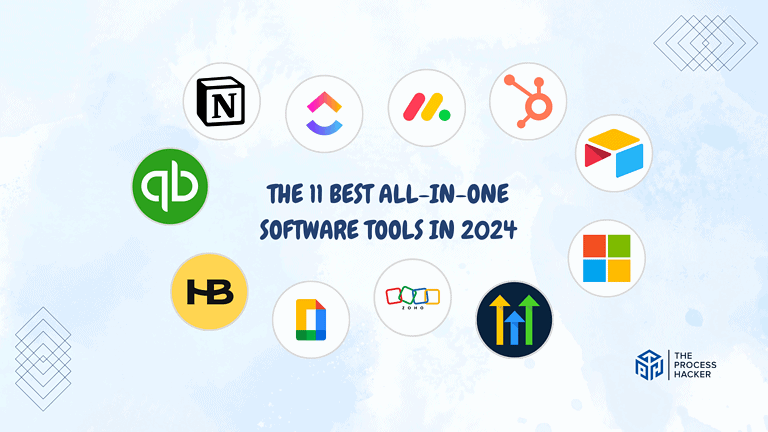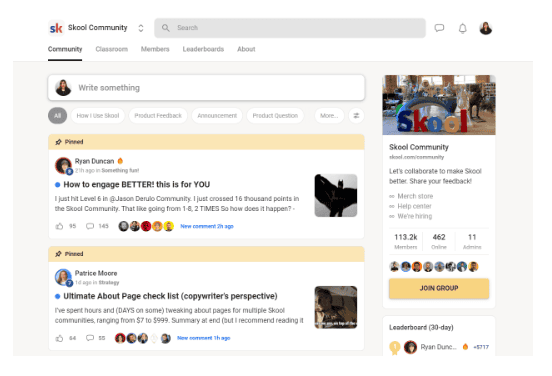What is a Business Growth Consultant? Why Hire One?
Are you a business owner looking to take your company to the next level? Do you feel like you have reached a point where you can’t handle all the growth and responsibilities on your own?
It may be time for you to consider hiring a business growth consultant. In today’s ever-changing target market, having an expert advisor by your side can make all the difference in achieving sustainable growth and success.
But what exactly is a business growth strategy consultant, and how can they help your company reach its goals?
Join us as we dive into everything you need to know about these valuable professionals and why outsourcing your growth to one could be one of the best decisions for your growing business.
What Is A Business Growth Consultant?
Professional business growth consultants are specialized advisors focused on helping businesses expand and increase profitability. This professional brings experience and industry-specific knowledge, tailoring strategies to enhance performance, enter new markets, and optimize business operations.
When you engage a business growth consultant, you’re not just hiring an advisor; you’re partnering with someone who can diagnose issues hindering growth and implement actionable solutions to address these challenges effectively. A growth consultant’s expertise is invaluable in refining your business model, identifying new revenue streams, or enhancing marketing efforts.
These consultants often have a background in business management, marketing, and economics and are well-versed in emerging industry trends and technologies. They use this knowledge to provide actionable insights and strategic planning to drive business growth in competitive environments.
What Business Consulting Services Do They Provide?
A business growth consultant offers services designed to boost your company’s performance and drive significant growth. Their business growth consulting services often encompass several key areas:
1) Conduct Strategic Planning
Strategic planning involves a deep dive into your business to shape a detailed roadmap that aligns with your long-term goals and optimizes your trajectory toward them.
Long-term objectives are pivotal as they set the direction for your business over the coming years. Here are some common long-term objectives that growth consultants often help businesses to define:
- Revenue Targets: Setting specific revenue goals for the next 3-5 years.
- Market Expansion: Planning to enter new geographical markets or introduce new product lines.
- Customer Base Growth: Aiming to increase the customer base by a certain percentage or targeting new customer segments.
- Sustainability Goals: Implementing eco-friendly practices and achieving sustainability certifications.
- Technology Advancement: Integrating new technologies to improve product offerings or enhance operational efficiency.
- Brand Recognition: Elevating brand status to become a top contender within the industry.
The strategic planning process is crucial for businesses in setting a clear direction and growth goals. Growth consultants work closely with business leaders to identify their objectives and develop strategies to achieve them.
2) Identify Market Opportunities
A business growth consultant helps you spot market opportunities for growth. This involves the following:
- Emerging Markets: Identifying and evaluating new markets that show promise for your products or services.
- Trends Utilization: Capitalizing on current industry trends that align with your business capabilities.
- Partnership Potential: Recognizing partnership opportunities or joint ventures that can expand your reach or capabilities.
- Niche Markets: Identifying and targeting specific market segments with a high growth potential.
By conducting thorough research and analysis, growth consultants help businesses identify potential areas for expansion and develop strategies to tap into these opportunities.
3) Set Actionable Milestones
Actionable milestones break your long-term objectives into manageable, measurable steps. These are typically time-bound and serve as checkpoints to ensure you are on track.
Common milestones set with the help of a growth consultant include:
- Product Development Milestones: Deadlines for new product launches or updates to existing products.
- Sales Milestones: Specific targets for sales teams include the number of new clients acquired or units sold by specific dates.
- Operational Efficiency Improvements: Goals for reducing operational costs or improving production time by specific percentages within a given timeframe.
- Employee Growth: Targets for hiring and training to support expansion plans.
- Marketing Campaigns: Launch dates and success metrics for new marketing initiatives to boost market presence.
As a business owner or entrepreneur, it is important to clearly understand your goals and how you plan to achieve them.
4) Conduct Market Analysis
Understanding your market is crucial, and a growth consultant excels at gathering and analyzing data to provide insights into market trends, customer behaviors, and competitive landscapes. This analysis helps tailor your business strategies and product offerings to better meet your target audience’s demands.
Here’s a concise guide to conducting a competitor analysis:
- Identify Competitors: List direct and indirect competitors in your market using online searches, industry reports, and customer feedback.
- Gather Information: Collect data on their products, pricing, market share, marketing strategies, and customer base.
- Analyze Strengths and Weaknesses: Evaluate what competitors do well and where they fall short. Focus on areas like product quality, customer service, and operational efficiency.
- Evaluate Business Strategy and Performance: Review their business models, profitability, innovation, and customer loyalty strategies.
- Benchmark: Compare your business against competitors on key metrics to identify areas for improvement and opportunities to differentiate.
- Monitor Regularly: Monitor competitors’ strategies and market changes using tools like Google Alerts and social media monitoring.
This streamlined approach helps you understand your competitive landscape and strategize effectively.
5) Process Optimization
Efficiency is vital for any thriving business. Consultants examine your current processes and identify inefficiencies that are costing you time and money. Streamlining these processes helps improve productivity and operational efficiency, reducing costs and increasing profitability.
Creating a table to showcase potential savings from process optimization can help visualize the financial impact of making your operations more efficient.
| Area of Optimization | Description | Estimated Cost Savings (%) |
|---|---|---|
| Production Efficiency | Streamlining manufacturing processes. | 10-15% |
| Supply Chain Management | Improving logistics and supplier negotiations. | 5-10% |
| Energy Consumption | Reducing energy usage with efficient practices. | 10-20% |
| Waste Reduction | Minimizing waste material and recycling. | 5-10% |
| Labor Utilization | Enhancing workforce productivity. | 10-15% |
| Inventory Management | Optimizing stock levels to prevent overstock. | 5-10% |
6) Financial Advisory
Managing finances effectively is another area where business growth consultants provide expertise. They can assist with the following:
- Budgeting: Analyzing current expenses and identifying areas where cost savings can be achieved, such as streamlining production processes or reducing energy consumption.
- Cash Flow Management: Monitoring cash flow and developing strategies to ensure a healthy cash flow for the business.
- Financial Planning: Creating long-term financial plans and setting goals for the business.
- Investment Strategies: Advising on potential investment opportunities and ways to maximize return on investments.
With their knowledge and experience, business growth consultants can help a company become more financially stable and successful. Further, these initiatives ensure that your financial resources are aligned with your growth objectives.
7) Training and Development
These consultants also help with your team’s training and development to ensure lasting growth. They can offer workshops to enhance your employees’ skills, ensuring that your workforce is capable, confident, and ready to take on new challenges. These workshops include leadership training, communication skills, and technical training.
Additionally, business growth consultants can guide hiring strategies and create a positive company culture that will attract top talent and retain current employees. By investing in the development of your team, you are ultimately investing in the future success of your business.
Overall, a business growth consultant is crucial in helping your company navigate growth phases and scale effectively. Hiring a consultant gives you access to specialized knowledge and an external perspective to drive business success.
What Are The Benefits of Hiring A Business Growth Consultant?
Sometimes, your business might feel like it’s hit a plateau. A business growth consultant can be the key to breaking through and reaching new heights. Here’s why:
- They offer an outside eye: When you’re immersed in your business’s day-to-day, it’s easy to miss potential opportunities or problems. A consultant brings a fresh perspective to the table.
- They have proven strategies: Growth consultants bring a wealth of knowledge about what works (and what doesn’t) in your industry. They won’t waste your time on trial and error.
- They provide honest feedback: Because they’re not part of your internal team, a growth consultant can give you the unbiased insights you need to make the best decisions.
- They focus on your unique situation: A growth consultant won’t give you generic advice. They’ll tailor a plan specific to your business needs and goals.
How to Find The Right Business Growth Consultant?
Finding the right business growth consultant is critical to maximizing your results. Here’s how to ensure you choose the right partner:
- Define your specific needs: Before searching, identify the areas where you require expertise. This might include market expansion, sales optimization, or operational efficiency.
- Seek industry-specific experience: Choose a consultant with a proven track record of success in your field and with companies of a comparable size.
- Evaluate communication skills: A strong consultant communicates complex ideas clearly and collaborates effectively with your team.
- Understand their methodology: How does the consultant assess situations and create strategies? Ensure their approach complements your company’s work style.
- Verify references: Contact past clients to gain insights into the consultant’s work ethic and the results they helped achieve.
Invest time in interviewing several consultants. The right fit will be an influential asset in achieving your business goals.
Final Thoughts on Hiring a Business Growth Consultant
A growth consultant can be an invaluable partner if you’re ready to take your business to the next level. But before you decide, consider these points:
- Do your homework: Not all consultants are created equal. Research those with expertise in your industry and a successful history with businesses like yours.
- It’s about fit: The best consultant isn’t just about their resume—it’s about whether their style and approach mesh well with your team and company culture.
- Be transparent: Open and honest communication with your consultant is crucial for crafting a plan that addresses your business’s needs and challenges.
- This is an investment: Remember, hiring a consultant is an investment in the future of your business. The right partner will help you generate returns that far outweigh their fees.
The benefits of hiring a business growth consultant are clear. Their role is pivotal, from providing expert insights and objective perspectives to crafting customized strategies and driving growth.
If you’re ready to take your business to the next level, this could be your wisest decision. After all, in business, growth isn’t just a goal—it’s a necessity.







